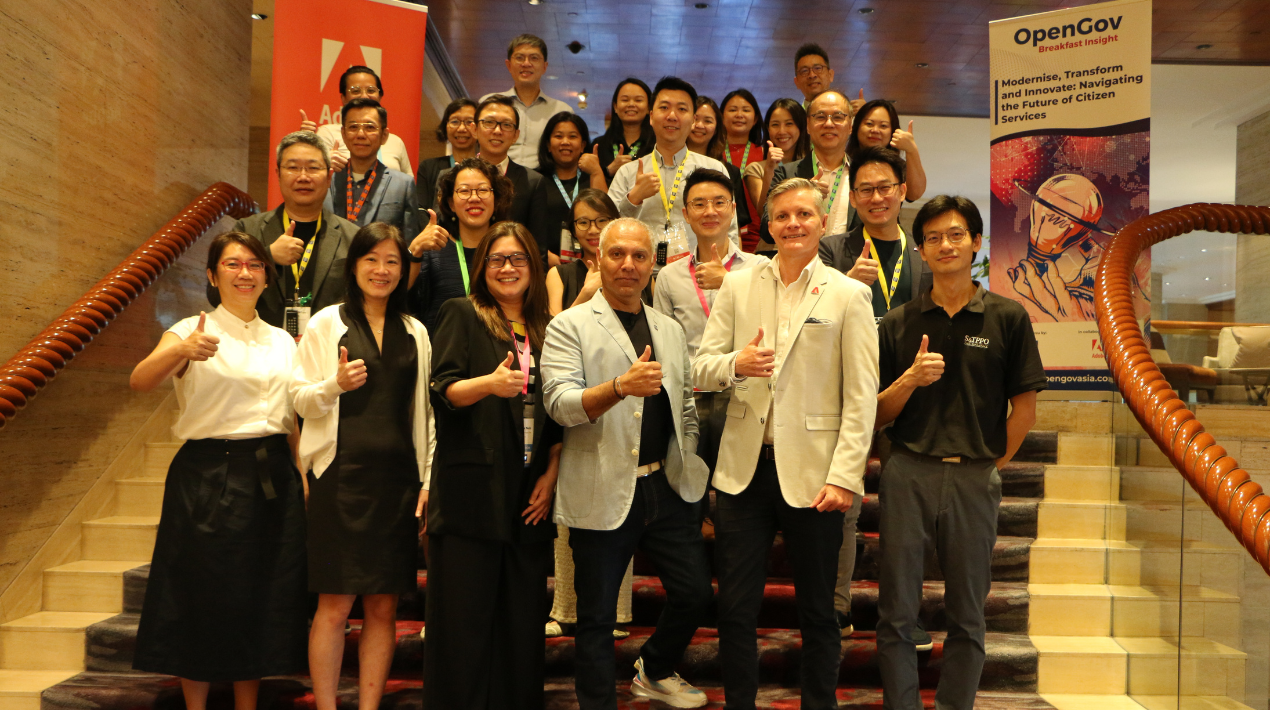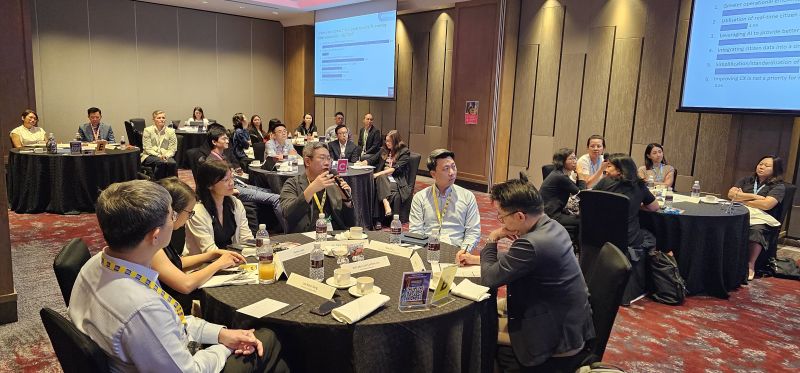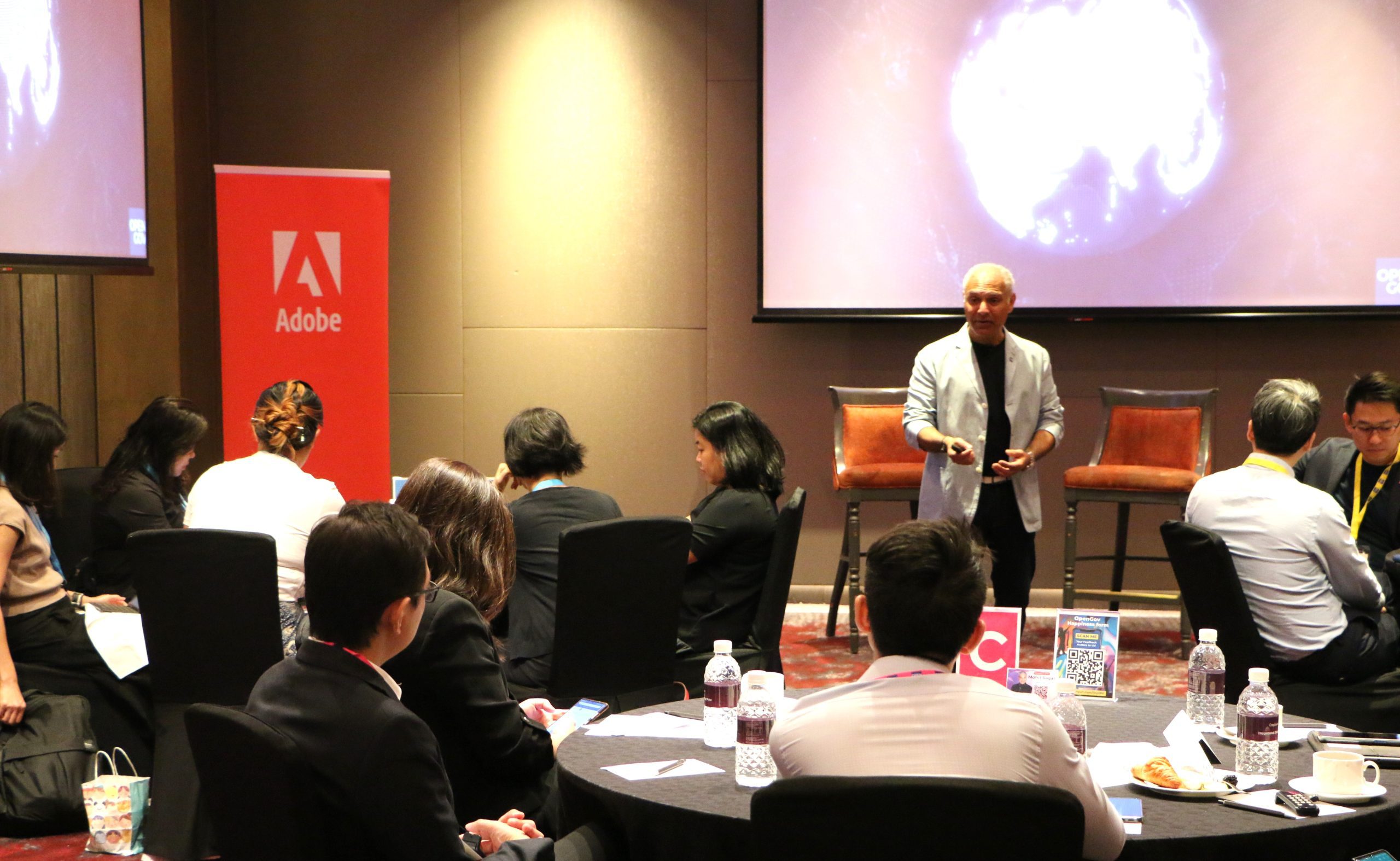
|
Getting your Trinity Audio player ready...
|
In an era marked by rapid technological advancement, the landscape of citizen services is experiencing a profound revolution, driven by the principles of modernisation, transformation and innovation.
Citizens’ expectations are rapidly evolving, shaped and influenced by their interactions with the private sector. They now demand more efficient, accessible, and personalised services from their governments. Modernisation has become an imperative, necessitating a reevaluation of service delivery methods to cater to the diverse needs of citizens.
The evolution of the citizen experience entails a transition from conventional, often cumbersome, procedures to user-friendly digital engagements that prioritise the citizen’s viewpoint. However, as they transition to this technology-dependent environment, digital inclusivity assumes a central role. Inclusivity involves designing services accessible to all, regardless of age, abilities, or socioeconomic status. Recognising diversity as a strength leads to solutions tailored to the unique needs of every citizen.
Governments must guarantee that digital services remain accessible to every citizen, irrespective of their backgrounds, abilities or circumstances. Beyond a moral imperative, inclusivity is a strategic move to level the digital playing field and prevent anyone from being left behind in the digital age. The future of citizen services hinges on bridging the digital divide and creating solutions for diverse audiences.
Against this backdrop, innovation in service delivery is not merely an aspiration but the driving force behind governments and organisations striving for enhanced efficiency. Utilising emerging technologies, data analytics, and innovative methods, governments aim to provide faster, more cost-effective, and agile services, ultimately improving all citizens’ lives.
Data and analytics play a pivotal role in this landscape, driving data-driven decision-making that informs personalised services and policy decisions. Data analytics offers the insights required to optimise service delivery and proactively address citizen needs, bridging the gap between traditional service provision and a data-driven future.
This transformative journey is accompanied by a range of challenges and unique opportunities, with governments and organisations worldwide venturing into uncharted territory as they embark on this transformative journey. As they do, synergy and partnership between the government, organisations and people will be vital.
Each entity and person has a pivotal role in shaping the future. Collaborative efforts, both within and across sectors, are essential. Sharing experiences, best practices, and innovative solutions pave the way toward a future where citizen services are not only modern, transformed, and innovative but also genuinely citizen-centric and inclusive.
The OpenGov Breakfast Insight on 24 October 2023 held at the Sheraton Towers Singapore delved into the latest findings from an exclusive report on Government Digital Performance and Inclusion Indicator. This invaluable research sheds light on the current state of digital government performance and inclusion, providing essential insights into the journey ahead.
Opening Remarks

In the era of advanced technology, innovation remains a constant force, says Mohit Sagar, CEO and Editor-in-Chief of OpenGov Asia. In this context, government utilisation of technology enhances public service satisfaction, reshaping daily work, interaction and lifestyles.
Amid the pandemic, a complete cessation of activities occurred, including the interruption of government services. Nations found themselves unprepared for such an abrupt halt. Consequently, governments acknowledge the need to leverage technology to ensure continuous access to their services for all members of society, irrespective of unforeseen crises.
Singapore stands out as a nation that places a high priority on technological advancement across multiple sectors. In line with the Smart Nation initiative, Singapore is poised to take the lead in applying AI solutions to address real-world challenges, encompassing areas like business and government, with a projected timeline of achieving this leadership status by 2030.
The aim of the Singapore Smart Nation Initiative itself is to make the city-state a global leader in the economic and societal fields in the digital era. The initiative aspires to use data and technology to improve public services, raise living standards and provide new opportunities for individuals and businesses.
“Of course, in this case, delivery of public services and an excellent citizen experience are vital. By improving public services, Singaporeans will certainly feel comfortable living in their country,” says Mohit.
Out of Singapore’s population of 5.6 million residents, over 4.5 million individuals have embraced the Singpass application. Through Singpass, users gain access to a remarkable array of over 1,700 digital services, made available by a network of more than 460 government agencies and private companies.
These apps have become important digital bridges, connecting individuals with a wide range of services covering various aspects of daily life, from government administration to business transactions. Singpass provides Singaporeans with easier and more efficient access, integrating digital technology into various aspects of their daily lives.
Mohit highlights the growing significance of technological transformation, which has prompted critical inquiries concerning ethics, privacy, and societal consequences that demand thorough exploration. He further noted that certain segments of the Singaporean population may not possess the same ease in grasping digital technology.
Mohit firmly believes that prioritising user experience is paramount in the development of digital services. Governments must introduce innovations aimed at enhancing the user experience (UX) across its diverse digital platforms. All government websites and apps must be designed to be user-friendly.
Mohit agrees that improving the citizen experience is one of the main goals of Singapore’s digital government, and this can be enhanced by making it easier, faster and more secure for citizens to access online services and carry out transactions.
Additionally, Mohit underscores the critical importance of cybersecurity as a primary ethical consideration for government actions in their interactions with society. In an increasingly digitally connected world, securing cyber infrastructure is an important step in maintaining public trust in government.
Security and privacy are issues that must be addressed to increase public satisfaction with services. This implies a deep commitment to protecting citizens’ personal data and information, as well as maintaining the confidentiality and integrity of technological systems used by the government.
“Ultimately, in the digital age, government innovation enhances public services and reshapes daily life,” Mohit concludes. “This can only be done through technological advancement, with an emphasis on user-friendly solutions and platforms.”
Welcome Address

According to John Mackenney, Practice Director of the Digital Strategy Group – APAC at Adobe, in this digital age, the landscape of citizen services is evolving at an unprecedented pace. As they witness the rapid proliferation of digital technologies, the ability to transform the way organisations interact with citizens and deliver essential services is nothing short of revolutionary.
“The challenges and opportunities before us are immense,” says John. “And today, we embark on a collective mission to chart a course toward a more connected, efficient, and citizen-centric future.”
John underscores the necessity for governments and organisations throughout the Asia-Pacific area to actively welcome change. However, modernisation must go beyond simply adopting the newest technologies; it involves reenvisioning processes and systems to enhance their agility and responsiveness to citizens’ requirements.
“Transformation is more than just adaptation. It is a fundamental transformation in thinking, culture, and strategy,” John believes, “Indeed, innovation is the lifeblood of progress, the driving force that propels us to new heights.”
He acknowledges that the pandemic revealed the critical importance of digital transformation in delivering citizen services effectively. Moreover, it accelerated the journey toward a digital-first approach, pushing boundaries and challenging conventions. The lessons learned during this challenging period have reshaped the vision of what is possible, urging the people to rethink, reevaluate and reinvent the approach to citizen services.
John understands that while technology is a valuable ally in the endeavour to modernise and enhance citizen services, the intrinsic value of human interaction should never be underestimated.
“Behind every digital engagement is a citizen in search of information, aid, or assistance,” he cautions. “Therefore, it is crucial to always keep the citizen at the heart of our efforts, striving to create experiences that are not only efficient but also empathetic, responsive and inclusive.”
Harnessing the power of data-driven decision-making enables agencies to fine-tune and optimise their service delivery processes. By analysing data, they can gain valuable insights into citizen preferences, behaviours and needs. This, in turn, empowers them to tailor their offerings and solutions to match these specific requirements, ensuring that every interaction holds genuine significance and value for citizens.
In essence, data-driven decision-making not only enhances operational efficiency but also fosters a deeper and more meaningful connection between governments and the people they serve.
Innovation should remain a core focus, ensuring that the transformative capabilities of emerging technologies like artificial intelligence (AI), machine learning (ML), and blockchain are effectively deployed to improve citizen services.
The opportunities presented by these technologies are limitless, and it is a collective duty to leverage their potential to enhance services for citizens, ultimately driving greater efficiency and effectiveness in service delivery.
Collaboration and partnerships are essential in achieving the objective of enhancing the citizen experience and service delivery. Everyone must acknowledge that addressing the intricacies of modern citizen services cannot be effectively tackled by any single entity in isolation.
“As we explore the benefits of coming together, pooling expertise and co-creating solutions that transcend organisational and geographical boundaries, meaningful collaboration will emerge,” he concludes. “They will catalyse accelerated progress, enabling the delivery of more comprehensive, integrated, and seamless services.”
Fireside Chat
John Mackenney, Practice Director, Digital Strategy Group for the Asia-Pacific (APAC) region at Adobe, underscored the importance of the profound changes brought by digital transformation in public services. In an era where technology continues to develop rapidly, it is impossible to ignore the potential and benefits that can be obtained through the adoption of this technology.

Cloud-based solutions provide scalability, cost-effectiveness, and adaptability, empowering government agencies to securely centralise data, applications, and services. This guarantees easy access to information while concurrently diminishing infrastructure expenses. The capacity to adjust resource levels in response to demand ensures the efficient allocation of resources.
The introduction of AI and advanced tools within the public sector, notes John, offers many advantages including heightened efficiency, data-informed decision-making, enhanced citizen services, and an increase in public trust.
Ai is revolutionising service provision, especially in Singapore. AI-driven solutions can automate routine tasks, leading to increased efficiency and productivity. Chatbots, for instance, can provide citizens with quick and accurate responses to common inquiries, reducing the workload on government employees.
“Machine learning algorithms can also analyse vast amounts of data to identify trends and insights,” he explains. “This helps policymakers make informed decisions as AI can be used to enhance cybersecurity efforts.”
AI can assist in personalised citizen services. By analysing citizens’ data and behaviour, the government can offer tailored services and recommendations, improving overall user experience and satisfaction. This is particularly valuable in areas like healthcare and education.
Additionally, data analytics tools can provide valuable insights for government decision-makers. By harnessing the power of big data, the government can better understand citizen needs, optimise resource allocation, and identify areas for improvement.
Beyond a doubt, some concerns accompany the technology. Among the challenges are those related to data privacy and security, the ethical utilisation of AI, data quality, and the complexities of change management
Incorporating AI into the public sector introduces a spectrum of challenges and advantages, John observes. AI holds the potential to substantially enhance trust in data integrity by proactively overseeing and implementing cybersecurity measures.
In the face of the escalating cyberthreat landscape, AI-driven systems can perpetually scrutinise network traffic, promptly detecting anomalies or potential threats. This real-time monitoring significantly bolsters the government’s capacity to protect sensitive data and critical infrastructure, mitigating the risk of cyberattacks.

Adobe is well-equipped to assist government agencies in addressing these challenges and realising the full potential of AI in enhancing government services and data integrity.
In terms of data security, Adobe’s security solutions, including Adobe Sign, ensure data confidentiality and integrity through encryption, identity verification, and audit trails. For ethical AI, Adobe invests in research to mitigate algorithmic bias and promote transparency in AI decision-making.
When it comes to data quality, Adobe’s data management tools serve as valuable aids for government agencies, enabling them to uphold rigorous data quality standards. Additionally, in the realm of change management, Adobe offers training and support, facilitating a smooth transition to AI adoption through user-friendly and efficient workflows.
John emphasises that digital transformation is not just an option, but has become a necessity. Technological breakthroughs such as AI, advanced data analysis, and cybersecurity are key elements that can change the way people interact with the government and the services it provides to citizens.
Digital transformation is not just about modernising infrastructure or software; it’s also about improving people’s experiences with government. This includes providing services that are faster, more efficient and more accessible.
John strongly believes that leaders within the public sector should lead by example by embracing technology. They must serve as catalysts for change, inspiring and steering their organisations through the path of digital transformation.
“That is the only way we can fully harness the potential offered by this digital era and ensure that the government offerings continue to develop for the good of all,” he concludes. “With the right technology and bold leaders, we can ensure that public services become not only more effective but also more inclusive so that every citizen can benefit.”
Closing Remarks
John expressed his deep gratitude to the delegates for the enriching discussions and dedication to shaping a citizen-centric future and encouraged them to continue inspiring positive change in the realm of citizen services.
 He reiterated that modernisation has transitioned from being an option to an essential need, driven by the swiftly changing expectations of citizens. Citizen experience now necessitates a transition from conventional procedures to intuitive digital interactions, with inclusivity taking centre stage.
He reiterated that modernisation has transitioned from being an option to an essential need, driven by the swiftly changing expectations of citizens. Citizen experience now necessitates a transition from conventional procedures to intuitive digital interactions, with inclusivity taking centre stage.
The importance of inclusivity is highlighted as both a moral obligation and a strategic necessity, emphasising the need to ensure that digital services are available to everyone, regardless of their background or abilities.
In this context, efficiency is vital, with innovation in service delivery leading the way. Emerging technologies and data analytics hold the potential to optimise processes and improve decision-making while enhancing citizens’ lives.
In closing John reminds everyone that that the journey toward modern, transformed and innovative citizen services is a collective endeavour, “Collaboration across sectors and borders is the key to realising this vision.”
Mohit closed the event with sincere appreciation for the participants’ unwavering dedication to advancing innovation in citizen services. He underscored the event’s profound journey, delving into the fundamental principles of modernisation, transformation and innovation, stressing their pivotal role in shaping the future of citizen services.
Summarising the discussion, Mohit recalls that modernisation encompasses not only technological advancements but also a holistic shift in mindset and strategy. Transformation was defined as a profound, fundamental change extending beyond surface-level adjustments, while innovation emerged as the driving force towards enhanced efficiency and citizen-centricity.
He recognised that inclusivity was a recurring theme, underlining the importance of making digital services accessible to all citizens, regardless of their circumstances. Efficiency, too, remained at the forefront, emphasising the need for streamlined processes and optimised resource utilisation to benefit citizens.
“Our discussions today envision a future where collaboration, excellence, and a citizen-centric approach continue to shape the delivery landscape,” Mohit concludes. “Inclusivity, efficiency and innovation are the compass points guiding us towards a citizen-centric future of modernised, transformed, and accessible services.”
















